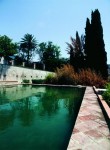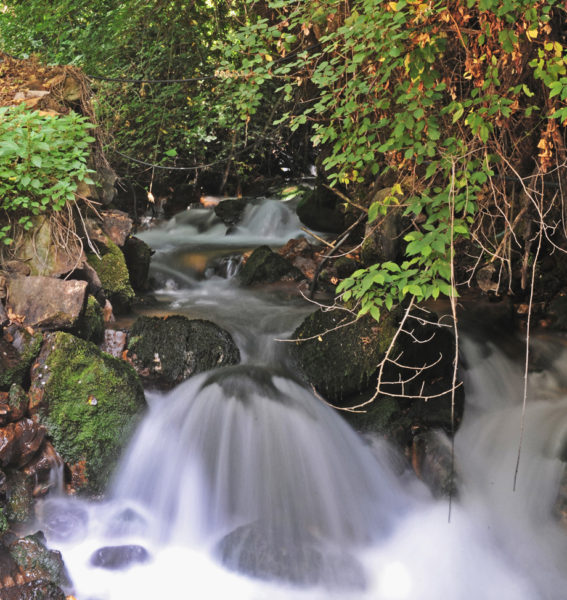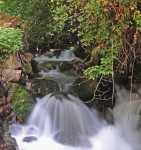For the Islamic world, water is the origin of life, and was created by God.
Water holds many meanings in Islam. Not only is it the origin of life, but it also serves to purify the human being, cleaning both the outside body and the inside soul, from a spiritual point of view. In the Koran, water appears as a symbol of divine generosity, without which the earth would not be able to provide food and drink for people and animals.
Moreover, water has formed part of Islamic culture over the centuries as an essential element, not only for farming and landscapes, but also as a complement for architecture. Fountains and irrigation channels were built so that the sound of water would enliven patios and gardens, and ponds were created to duplicate space by reflecting architectural structures.
When the Muslims entered the Iberian Peninsula, they found that many of the Hispano-Roman towns had the necessary infrastructure for carrying water but this was often destroyed or damaged. New towns were gradually raised on these ruins. They renovated what could still be used and applied new hydraulic techniques, establishing the definitive layout for the new Al Andalús towns.
 This was a period of outstanding developments in hydraulic engineering, as applied to the storage and supply of water. One of the most characteristic elements were the qanats, or underground irrigation channels which led water from an underground reservoir to where it was needed. The water flowed horizontally or down a slight slope, through just a single pipe or a whole labyrinth of complex, underground channels.
This was a period of outstanding developments in hydraulic engineering, as applied to the storage and supply of water. One of the most characteristic elements were the qanats, or underground irrigation channels which led water from an underground reservoir to where it was needed. The water flowed horizontally or down a slight slope, through just a single pipe or a whole labyrinth of complex, underground channels.
Many of the devices used (aqueducts, water wheels, water ducts, wells, reservoirs) take names in modern-day Spanish that stem directly from the Arabic – aceña, acequi, azud, aljibe, alberca. They are an integral part of the engineering skills that brought prosperity to the Iberian Peninsula and the rest of the Islamic world. Today, the Med-O-Med program pretends not only to acknowledge and protect all that legacy, but also to fight against the waste of this valuable resource, adopting rational and responsible uses appropriated to the actual time.
Current situation of water resource in the Mediterranean region
This post is available in: English Español


